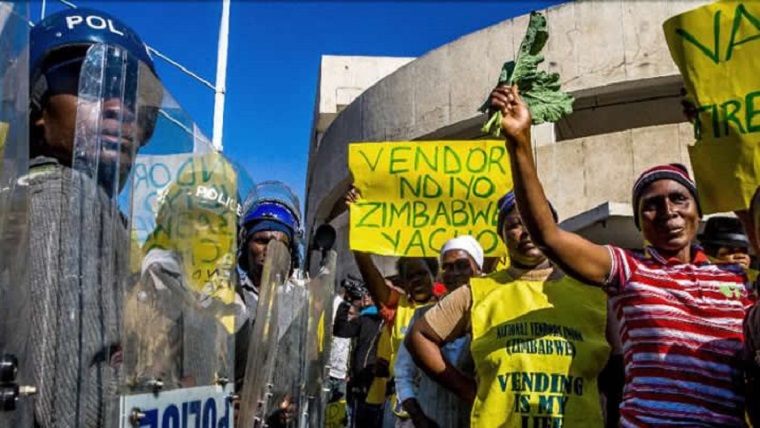In January this year, the Harare City Council in Zimbabwe accused informal food vendors of spreading typhoid.
The council then attempted to confiscate, and destroy, all perishable food items that were being hawked in the central business district.
Many vendors fought back, resulting in deadly clashes over a series of days in the opposition run capital city.
Sadly, such violent treatment of workers in informal markets is all too common in African cities.
Indeed, based on calculations from the Armed Conflict and Location Event Database, such treatment dramatically increased over the past decade.
In 2015, there were more than 250 incidents of violence against informal workers in Africa reported in the media, a more than fourfold increase since 2005.
Other examples of these so-called cleanup operations were carried out in Malawi in 2006 and 2015, in Nigeria in 2009, in South Africa in 2013, and in Zambia in 2007 and 2015.
These represent just a few examples of concerted “decongestion” efforts to push informal traders off the streets.
These campaigns typically involve authorities arresting and fining informal vendors.
But they extend to confiscating merchandise and demolishing makeshift trading stalls.
In addition to inflicting violence on a vulnerable population, government shutdowns of informal food markets deprive city dwellers access to a critical source of food.
Food markets in the informal sector are a vital source of both food and income for Africa’s urbanites.
Large urban poor populations in Africa rely heavily on the informal economy for accessible, affordable food.
These include most of their nutrient dense foods like eggs, meat, fish, and milk.
A study of 11 African cities found that 70% of households regularly purchase their food from informal markets or street vendors.
Continued next page
(85 VIEWS)
